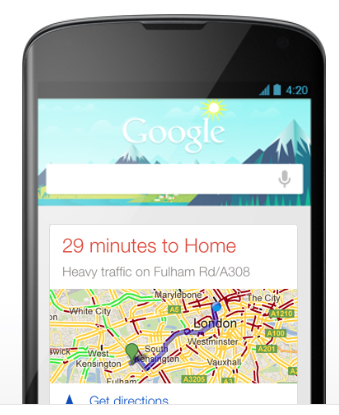
Apple hiring AI experts
Artificial intelligence means much more than a smart personal digital PA for Apple. They are exploring big-data and machine learning for advantages in product marketing, retail and other key areas of the business. Apple have clearly identified this will be a key benefit for the future and have, as a result, made large efforts to reach PhD-level and industry experts with its new hires.
Currently with beta versions of iOS 9, analysis of users behaviour has been conducted on the device, to give smart suggestions based on patterns of behaviour learnt by the device. Presenting, for example, frequently used Apps like the Podcast player in the multitasking view or lock screen when a user is at the gym (based on geo-fencing as well as recurring patterns app usage and schedules), or presenting the music player interface and a notification on current traffic conditions for your morning commute when your phone pairs with your cars’ bluetooth.
The surprise at the success of this feature (although still in beta), comes mostly from the fact that Apple, have managed to maintain users privacy by keeping their data on their device. Google’s approach with their competing product, Google Now, has leveraged the massive amount of information available to them from browser searches as well as vast swathes of data from Android phone users. This “big data” is then mined and processed by Google’s servers using algorithms to present the user with answers to questions, sometimes even before the user asks them (i.e. traffic conditions on the route home).

For some consumers, and even some businesses, this level of data sharing with Google is uncomfortable. Many people fear their data will be available to marketeers (bearing in mind that Googles principle source of income is from advertising), and others that their data can be accessed by governments, competitors and even cyber-criminals. Apple’s stance on developing AI within Siri and iOS has been about keeping users data within the users device. Apple’s senior VP of software engineering, Craig Federighi, talked about "adding intelligence throughout the user experience in a way that enhances how you use your device but without compromising your privacy, things like improving the apps that you use most”.
The potentially more interesting point about Apple’s hiring of AI and machine-learning experts however, is in other fields, away from concerns about individuals data privacy and in product marketing and retail for example. Apple is currently one of, if not the biggest company in the world based on market cap. Despite dire warnings by industry commentators, Apple not only entered the world of high street retail, but have subsequently come to be, by most measures, the most successful retailer in the world.
This success has mostly been based, up to this point, on identifying markets that have been ripe for disruption. The iPod was not the first MP3 player, but it dominated that sector, much as the iPhone was not the first smart-phone, but its certainly the most important at this point. To continue to have this level of success is far from easy, there are only so many product areas that are ready for Apple to completely reinvent. Many commentators have long predicted Apple television sets or Apple cars, some predicted larger iPhones and Apple Watches. The market analysis to design, research and launch a device like the iPhone 6 and 6 Plus, never mind the colossal effort with the supply chain and production process, comes from huge amounts of data analysis. Gone are the days when a force of personality like Steve Job’s would revolutionise purely based on his personal instincts, as with the iPod and even Apple’s retail stores.
Product development now rests, as does product marketing and even retail, on massive data crunching, on machine learning. The ability to use the masses of data, far more than human data scientists can hope to analyse, with algorithms that can recognise patterns and learn to make predictions based on a huge variety of data are becoming increasingly important. Take stock markets as an example, large trading houses routinely now use AI to trade stocks automatically, based on computational learning and algorithms, reacting to market changes in a fraction of the time a human trader could in order to make huge profits and avoid massive losses. Apple have recognised that, alongside improving the capability of their devices for consumers, AI has a big place in helping it to develop its business going forward.
 12 months interest free on any Mac over £1,000.
12 months interest free on any Mac over £1,000.
No Comments yet. be the first to comment.